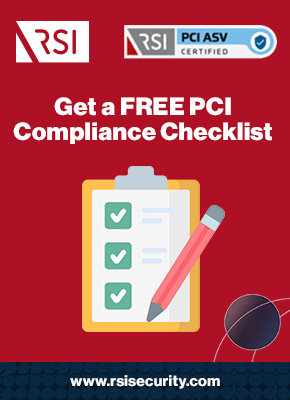eCommerce businesses that process large volumes of card payment transactions must protect the sensitive data involved. Strong SSL security and PCI compliance for eCommerce practices can minimize data breach risks and enhance your overall eCommerce cybersecurity. Read on to learn about the top challenges and considerations.
Factors Affecting SSL Security and PCI Compliance for eCommerce
The most important aspects of strengthening SSL security and PCI compliance for eCommerce include:
- PCI DSS Requirements for SSL security
- Vulnerabilities to SSL security
- Considerations for eCommerce SSL security
Using unsecured web applications to process eCommerce transactions risks cardholder data (CHD) security. However, working with an experienced PCI compliance specialist can help address challenges to SSL security and PCI compliance for eCommerce.
What is SSL Security?
SSL (Secure Sockets Layer) is a security protocol for encrypting communication across two endpoints (typically network-connected devices). The use of SSL for securing eCommerce transactions helps safeguard data transmission between endpoints, including:
- Point-of-sale (POS) terminals
- Payment processors
Most eCommerce companies use SSL certificates to demonstrate the security of their websites. Components of SSL certificates include:
- Domain name – Verifies an authorized user domain
- Site owner – Each owner has a private key corresponding to a website public key.
- Signature of a trusted certificate authority (CA) – Demonstrates the connection between private and public keys above and the domain
- Technical certificate information – Specific technical details, including:
- Expiry date
- Algorithm used by the CA to sign the certificate
- Extent of domain validation
An SSL certificate will demonstrate and validate your organization’s web application security to eCommerce customers.
Request a Free Consultation
SSL Upgrade to TLS Security
SSL protocols were recently replaced by Transport Layer Security (TLS) protocols, considered more secure for eCommerce and broader web applications. Both SSL and TLS security protocols are implemented in HTTPS (secure Hypertext Transfer Protocols) websites for eCommerce transactions.
There are currently four versions of SSL/TLS, including:
- SSLv3 – The advent of SSL security and released in 1996
- TLSv1.0 – The first upgrade to SSL and released in 1999
- TLSv1.1 – An upgrade from TLS v1.0 and released in 2006
- TLSv1.2 – The most secure and recent update to TLS
Most web browsers will use any of these SSL/TLS versions. However, ensuring the appropriate SSL security and PCI compliance for eCommerce transactions can help prevent attacks to vulnerable security protocols.

PCI DSS Requirements for SSL Encryption
The twelve PCI DSS Requirements stipulate guidelines for businesses to protect the security of card payment transactions, including those for eCommerce. SSL security and PCI compliance for eCommerce requires companies to follow applicable PCI DSS guidelines—notably, Requirements 2 and 4.
Requirement 2: Avoid the Use of Vendor-supplied Security Parameters
According to PCI DSS Requirement 2, merchants must avoid using default and potentially compromisable security parameters by:
- Establishing additional security for all configuration standards reliant on SSL/early TLS protocols to process CHD
- Using strong cryptographic tools to secure administrative access, especially for SSL/TSL protocols
Securing access to CHD can improve SSL Security and PCI Compliance for eCommerce transactions and help prevent unauthorized access.
Requirement 4: Secure Transmission of Cardholder Data
When transmitting CHD across open, public networks, PCI DSS Requirement 4 mandates businesses to use secure SSL/TSL protocols, ensuring:
- Use of trusted website keys and certificates
- Secure configurations of protocols
- Appropriate strengths of encryption
Secure SSL certificate and PCI compliance measures protect CHD during transmission, minimizing data breach risks to otherwise vulnerable data.
PCI DSS Appendix A2: Requirements for SSL/TLS Security
Any SSL/TLS protocols used for CHD encryption must cover one of two requirements stipulated in PCI DSS Appendix A2:
- Devices should not be susceptible to known vulnerabilities that compromise these protocols.
- There should be an established and documented formal risk mitigation and migration plan.
Any other SSL/TLS implementations beyond those listed above must be covered by the risk mitigation and migration plan.
Vulnerabilities to SSL Security and PCI Compliance for eCommerce
Although several vulnerabilities to SSL/TLS protocols have been identified, many eCommerce businesses still transmit card payment data using these protocols. To ensure your organization has implemented the best protections, designate someone (or a managed security services provider) to keep your utilized SSL/TLS protocols up-to-date.
Ongoing use of SSL/early TLS protocols presents protocol vulnerabilities to SSL Security and PCI Compliance for eCommerce.

POODLE Attacks
When cyberattackers deploy Padding Oracle on Downgraded Legacy Encryption (POODLE) attacks, they can steal information from otherwise encrypted transactions processed via SSL 3.0. They generally launch POODLE attacks using a “Man-in-the-Middle” approach, exploiting vulnerabilities such as information transmitted over open, public networks.
POODLE attacks can compromise the security of eCommerce transactions by:
- Exposing sensitive data within an encrypted session, some of which includes:
- User passwords
- Cookies
- Authentication tokens
- Using exposed authentication tokens to:
- Impersonate a compromised user on other websites
- Access databases containing sensitive data
Vulnerabilities in SSL 3.0 that result in POODLE attacks cannot be currently remediated, except by disabling SSL 3.0 support features within a web application configuration.
BEAST Attacks
Launching Browser Exploit Against SSL/TLS (BEAST) attacks involves cybercriminals accessing a user’s current web session via the session ID. Hackers can also access the traffic exchanges between a user and the device used to access a web application.
While the BEAST vulnerability is not currently fixable, installing critical security updates can help secure web access for eCommerce transactions. Further protection of web applications vulnerable to BEAST requires businesses to:
- Avoid exposing devices or systems used to process CHD to the Internet
- Isolate vulnerable networks and devices from external traffic via firewalls
- Secure remote access of devices to the Internet via Virtual Private Networks (VPNs)
Protecting your eCommerce transactions from SSL vulnerabilities can help strengthen SSL Security and PCI Compliance for eCommerce.
Considerations for eCommerce SSL Security
As of June 2018, the PCI Security Standards Council (SSC) mandated SSL Security and PCI Compliance for eCommerce guidelines that required all entities to:
- Stop the use of SSL and early TLS security protocols
- Implement only secure TLS protocols
- Establish a formal risk mitigation and migration plan if still using early SSL and TLS protocols
For businesses that still rely on SSL and early TLS protocols for their web applications, several considerations can help achieve SSL Security and PCI Compliance:
- Migration to the latest TLS version – As the best option to protect your CHD from breach risks, migrating to TLS v1.2 or TLS v1.1 at the minimum can help avoid protocol vulnerabilities. Specific considerations for risk mitigation and migration planning include:
- Controls to address risks to SSL and early TLS protocols during migration
- Descriptions of vulnerable protocols in use
- Processes used to scan and identify new vulnerabilities to SSL and early TLS protocols
- Review of migration plan by a Qualified Security Assessor
- Ongoing security patching – Although most protocol vulnerabilities are unremediable, patching can help address implementation vulnerabilities (e.g., Heartbleed for Open SSL software).
- Secure TLS configurations – Implementing secure configurations for TLS protocols helps minimize risks posed by vulnerabilities. Specifically, eCommerce businesses can:
- Support secure extensions of TLS protocols
- Disable extensions not considered critical for application functions
Regardless of which SSL or TLS protocol you use, addressing SSL security and PCI compliance for eCommerce will protect card payment transactions from threat attacks. A leading PCI compliance partner will help you migrate to the most secure TLS configurations.
Address SSL Security and eCommerce PCI Compliance Challenges
The security of your eCommerce transactions depends on secure transmission protocols. With the help of a trusted PCI compliance expert, your business will address challenges to SSL security and PCI compliance for eCommerce and strengthen overall cybersecurity.
Contact RSI Security today to learn how you can streamline your PCI compliance.
Download Our PCI DSS Checklist
Assess where your organization currently stands with being PCI DSS compliant by completing this checklist. Upon filling out this brief form you will receive the checklist via email.

